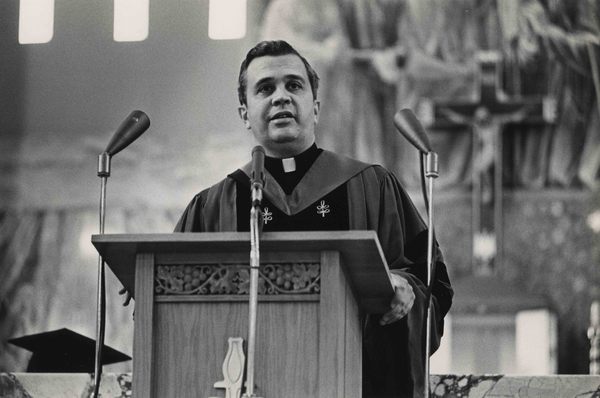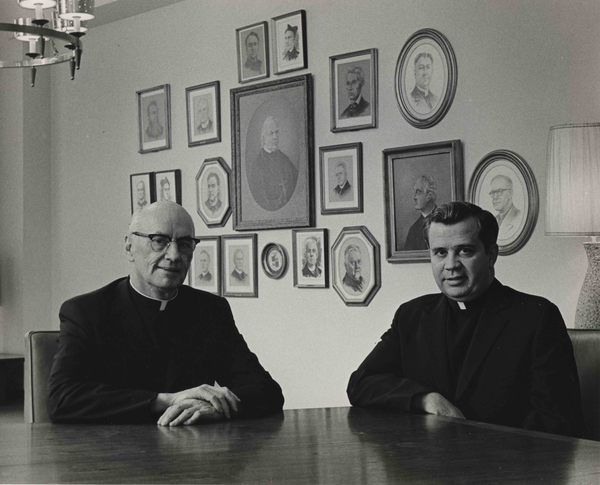1970-1975
At his inauguration in 1970, Rev. Baumhart relayed his goals for the university to accomplish. These goals included long-term actions such as involving more university members in major decisions, getting the university out of debt, and elevating the role of women at Loyola. Baumhart promised that major building projects would not be approved until he was sure they fit Loyola's priorities. At the time, Lewis Towers at the Water Tower Campus was a particular focus for improvement. Other components that Baumhart wished to implement were student communication and an improved sense of Jesuit values in all facets of the university.
In his first year, Baumhart oversaw Loyola's centennial celebration and official name change to "Loyola University of Chicago," which has remained the school's formal title. The new administrative offices of Chancellor and General Counsel were also created. Former president Rev. Maguire became the first university Chancellor. Additionally, Baumhart announced a fundraising campaign called PLUS (Progress for Loyola University in the Seventies). The campaign consisted of a $150 million goal over ten years in order to pay off existing construction costs, support faculty development, and save for new campus buildings.
By the end of 1972, Loyola underwent large academic shifts. The Black World Studies program (now African Studies and the African Diaspora), Loyola's first interdisciplinary program, and the Urban Ethnic Studies program were launched. In addition, the Theology master's program was added. The College of Arts and Sciences core curriculum changed from requiring 75 credit hours to 48; students were required to take courses in natural sciences, behavioral sciences, theology, expressive arts, english, humanities, and history. Students no longer needed to take foreign languages, political science, or sociology.


